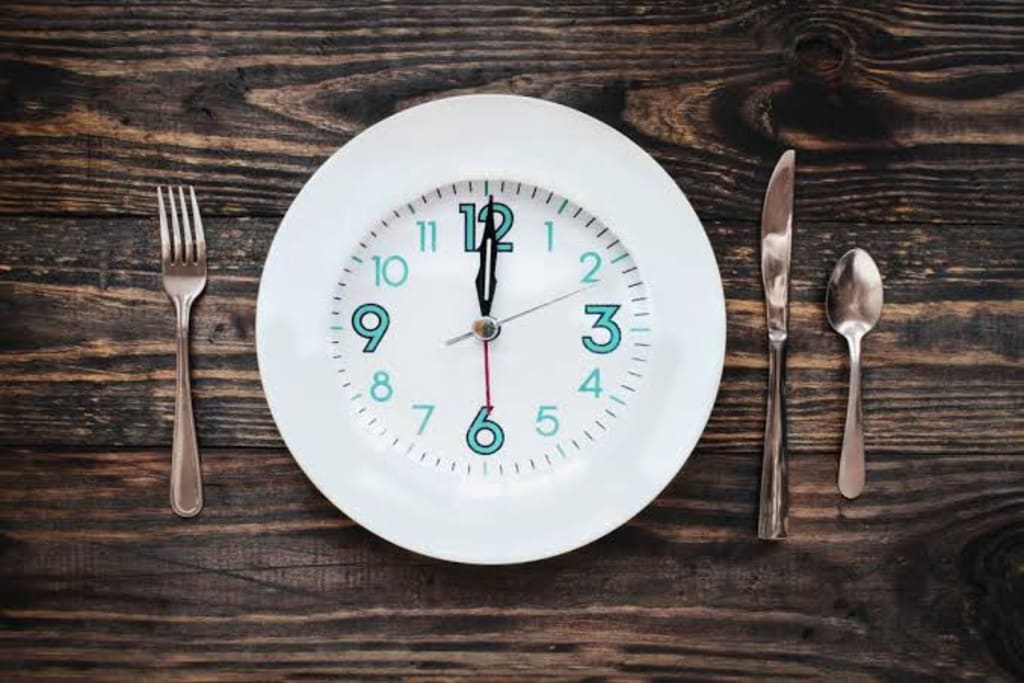Is intermittent fasting safe?
It is a way of life, a diet, or an eating plan

It is a way of life, a diet, or an eating plan. It is an extremely popular way to stay in shape and maintain your strength. But is irregular fasting right for you? It is a way to eat that doesn't depend on how much you eat or what kind of food it is. You can go without food for a certain number of hours each day or drastically reduce your food intake for a few days. This is the most well-known weight management plan in the U. However, it's important that some advocates consider it an eating design or a way of living, and not an eating routine. What are the benefits of intermittent fasting? ?
The American Heart Association reviewed the evidence and concluded that "both substitute day fasting as well intermittent fasting may be effective in weight reduction." However, there is no data to support long-term weight loss. The AHA looked at previous research into intermittent fasting and substitute day fasting, and found that body weight decreased fundamentally in all of the reviews by 3% to8% after 3 to 24 week's treatment.
Other studies, which include creatures, suggest that discontinuous fasting can help to bring down glucose levels, slow down the progression of malignant growths and further improve mind wellness. It can also prolong your life. Assuming that the more substantial benefits of discontinuous fasting can still be maintained over time, there will be more research on people.
What is discontinuous fasting?
Johns Hopkins neuroscientist Mark Mattson has been studying discontinuous fasting for more than 25 years and is the author of The Intermittent Fasting Revolution. He said, "If someone is eating three meals per day in addition to small bites and they are not exercising, then they will be consuming calories every time they eat." This cycle is broken by intermittent fasting.
After a few hours of starvation, your body will run out of carbohydrates (from glycogen) and start to consume fat. Mattson calls this "metabolic exchanging". This is known as "metabolic exchanging" and it can be done over a long time. Your body will also find it easier to access your fat stores for energy. This is important because there are nine calories per gram of fat, and only four calories per gram carb. The body's primary source of energy.
What would you do?
You can eat whatever you want for a time (see below), but don't eat it for more than that.
While you can still eat and drink the same as normal on non-fasting day, try to ensure that you have a variety of healthy food sources such as whole grains, vegetables, sound fats and excellent wellsprings of nutrition. You won't feel full for very long if you eat exceptional food.
On fasting days, most plans allow you to drink only water. Water can help you feel fuller for longer periods of time, and caffeine can provide some relief from hunger pangs.
Try the arrangement for a few days to see how it feels. However, keep in mind that your body may take some time to adjust to new food rules. Talk to your doctor if you feel any distressing side effects, such as yearning or crabbiness.
If you think that you can eat as many calories as possible under fasting conditions, then look elsewhere for a plan to get healthy.
Is it safe?
Intermittent fasting does not pose a risk if you are healthy. However, it is advisable to consult your doctor before starting.
Intermittent fasting is not recommended for people with diabetes, who are pregnant, nursing, or who have special dietary requirements. People with eating disorders or adolescents who are still in active growth should not do intermittent fasting.
It is for me?
Some people find it easier to follow than a calorie-controlled diet. This is because you don't have to think about how to prepare your meals, and it will save you time and effort. Research has shown that irregular fasting may be beneficial for overweight and hefty individuals, but it can also cause changes in the state of mind, weariness, strain, and indulgence on non-fasting days for those of normal weight.
Some people find irregular fasting more interesting than a way to eat. It helps them keep up with their heavy load over the long term. It's possible to go without food for a long time, but it might be too difficult. One review found that members ate 14% more food than they expected, even though they knew that their calories would be severely restricted the next day.
Fasting plans
These are not all the popular intermittent fasting plans, but they do make an attempt to be.
Fast for 12 Hours
This is the easiest way to keep your fasting time, if you include seven or eight hours sleep between 6 and 6 am.
16 hours
Limit your food intake to eight hours per day. People choose between 7 AM and 3 PM, or 12 noon to 8 PM. However, you can experiment to find the best time for you.
Eat Stop Eat
Brad Pilon, a Canadian graduate student, developed this version. This involves fasting for 24hrs (over two days, noon to noon for example), once or twice per week. The plan requires that you eat at least one meal per day. If you want to make this plan work, he suggests resistance training. He states on his website that you must exercise your muscles at least twice per week.
5:2
This means you limit your intake to 500 calories for women and 600 calories for men two days per week. You can choose which one, but it is best to allow at least one day between fasting days to maintain your energy levels and avoid an addiction to sugary, fatty fast foods. Michael Mosley, who is behind 5:2, has developed the following plan: The New 5,:2 restricts your daily intake to 800 calories twice per week and follows a low-carb Mediterranean diet for all other times.
Be reasonable, no matter which one you choose. You might find it useful, but you may not be able to keep up with it. No matter which plan you choose, it is important to eat right and exercise regularly in order to reap the benefits.
About the Creator
Enjoyed the story? Support the Creator.
Subscribe for free to receive all their stories in your feed. You could also pledge your support or give them a one-off tip, letting them know you appreciate their work.





Comments
There are no comments for this story
Be the first to respond and start the conversation.